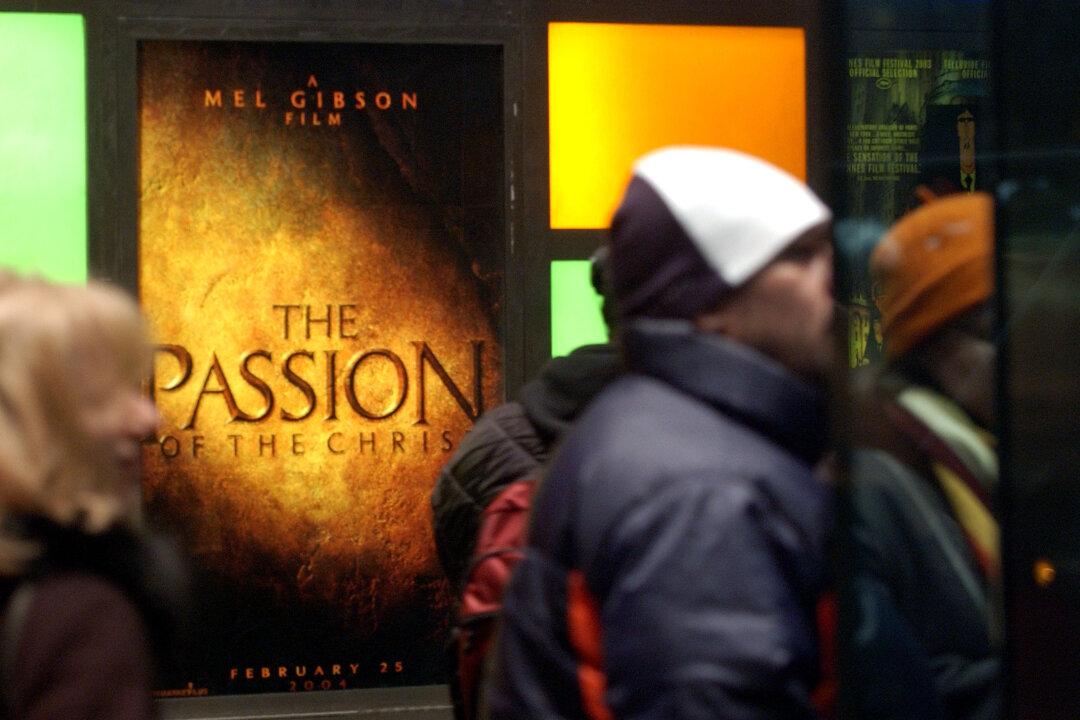Findings from a newly released study indicate an overwhelming demand among audiences for more accurate depictions of faith and religion in movies and television shows.
The Global Faith and Entertainment Study—which was conducted by market research firm HarrisX in conjunction with the non-profit Faith and Media Initiative—surveyed nearly 10,000 people in 11 different countries. It found that 80 percent of global audiences want the entertainment industry to improve its portrayal of faith.
Respondents noted that their religious beliefs were underrepresented in entertainment content compared to other elements of their personal identity, such as their gender, race, or sexual orientation. On the rare occasion that their religious identity was represented, consumers said it was typically not adequately portrayed.
Faith in Entertainment
The Faith and Media Initiative presented their recent findings on Feb. 13 during the inaugural Spirituality & Faith in Entertainment Breakfast, which was held in Los Angeles.“There’s been really a decrease in faith fluency and a decrease in the ability of the news media’s ability to cover this topic well,” he explained. “And what we found in that study is that actually people tend to gravitate a lot more on entertainment and tend to learn a lot more via the entertainment space than they do even with the news space.”
However, the Global Faith and Entertainment Study found a substantial gap in the entertainment market for positive spiritual content too, which consumers said they craved more of instead of the negative themes they commonly saw in films and television shows, such as conflict, power, and war.
Mr. Nesho said this unmet consumer need was both a good business opportunity and a possibility to create better understanding between people of different beliefs, especially “in a world that seems to be more conflict-driven and more chaotic.”
Spirituality & Faith in Entertainment Breakfast
A handful of celebrities came together to discuss the intersections of religion in film and television during the Spirituality & Faith in Entertainment Breakfast, including actors Rainn Wilson and Hilary Swank, the latter of whom stars in “Ordinary Angels,” which is set to be released on Feb. 23.The faith-based film is based on the true story of Sharon Steves (portrayed by Ms. Swank), a hairdresser and recovering alcoholic living in small-town Kentucky. After losing her faith, she later gains a renewed sense of purpose after meeting Ed Schmitt (played by “Reacher” star Alan Ritchson), a widower struggling to make ends meet for his two daughters.
The actress also touched upon the importance of acts of service, another overarching theme present in the film. “I feel personally as a storyteller that that’s my act of service, that I get this blessing to walk in different people’s shoes and see through their eyes,” she said.
“And it blows the blinders open of how I walk in the world and how I see the world,” she continued. “Because we see the world through our experiences, so I get to enrich mine through walking in Sharon’s shoes ... That act of service is how I’m evolving as a human.”
Known for his role in NBC’s sitcom “The Office,” Mr. Wilson—who was raised in the Baha'i Faith, a religion founded in the mid-19th century that centers on the unity of all religions—also discussed his religious journey within the industry during the event.
“My journey tiptoeing into the world of spirituality in media really came from some mental health crises that I had undergone as a youth and some issues that I’d had where I found great solace and peace and meaning through spirituality,“ he told Variety. ”And I felt like culturally we weren’t exploring them.”
Mr. Wilson released his New York Times best-selling book “Soul Boom: Why We Need a Spiritual Revolution” in April 2023. Years prior, in 2008, he co-founded SoulPancake, a digital media company that creates spiritually and socially conscious content.
“SoulPancake was really the first of its kind,“ he continued. ”It was a positive, uplifting media company for young people that explored the human condition.”







